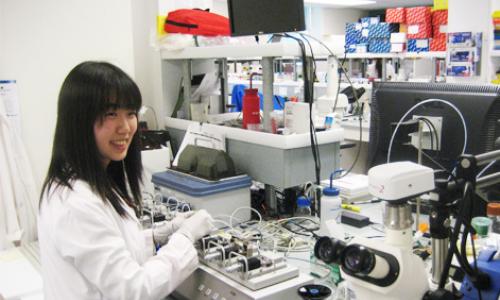
It’s been almost six months, now. The first co-op term during my PhD studies is soon to be over, and what is the most valuable thing I’m taking away from it? Perspective.
Computing science academic research is not an easy career path to choose. With computers being so deeply integrated into everything around us, it is often hard to think of things that have not been explored yet. Pair that with occasional crises that come with being a thesis-based grad student, et voila! You have yourself a nice recipe for feeling a bit lost.
Thankfully, my PhD supervisor understands how these things work and has a very efficient solution for motivating students. The solution is - you guessed it, interaction with industry. The important thing here is finding industrial partners whose work is at least somewhat related to your narrow fields of interest. All big companies have R&D divisions whose work is reminiscent of academic research with the important distinction of having a better perspective in terms of application to real problems. Most of them will be happy to let young adventurous minds delve into the complex mazes of their systems with the hope of finding flaws and, more importantly, ways to fix them.
Oracle Labs
Earlier this year, my supervisor pointed out an open spot for an intern at Oracle Labs here in Vancouver. For those who have somehow managed to miss Oracle on their big-company-radars, here’s a very brief summary, collected from the publicly available data online. Oracle Corporation is the second largest software maker by revenue. They specialize in enterprise software / hardware systems, their most famous product being the Oracle Database. In 2010, they acquired Sun Microsystems, adding another widely adopted product, Java, to their portfolio. Notably, SunLabs became Oracle Labs, adding a strong R&D entity to the ecosystem.
Oracle Labs’ presence in Vancouver is pretty young and still expanding. The R&D branch of the corporation employs some of the best minds from various areas, covering most of computing science. Most of the Labs’ people are based in the United States, with satellite offices gathering local talent all around the world.
The Vancouver office is shared with a larger team that joined Oracle in their PeopleSoft acquisition. It is located downtown, conveniently close to the waterfront, providing enjoyable lunch-break walks. The Oracle Labs team I have been a part of for half a year consists of few people, all being among the best in their areas of computing science. All of them are very involved in the project they are working on, and are always eager to share their knowledge with others. The team’s diversity of expertise and great integration feels almost like you’re working at a super-powered modern startup. Of course, that illusion is broken fairly easily because the whole project spans countries and involves many more people.
My Work at Oracle Labs
The work I did during my time at Oracle Labs got me going from the very familiar points of my own research to exploring new technologies I probably would not have gotten around to learning on my own. Add a dash of crazy-ideas-that-just-might-work (some of which have, of course, failed), and two sprinkles of your-regular-software-development, and it made a good mix! Your mileage may vary depending on what you are looking for in a co-op, but for me personally, it was a great experience overall.
So, what happened? I had an opportunity to work with some of the best out there. I had an opportunity to expose my ideas to them, causing reactions that span from “aha!”s over nods of recognition to puzzled looks. I learned a lot from them. In the after-hours I spent time thinking about the future paths to explore in my research. I have also improved my hard skills, which will definitely have a huge impact on my work. And, most importantly, I saw where my own research fits into the big picture!
As much as I will miss working with Oracle Labs, I am eager to go back to my studies and apply the amazing perspective I have gained. And, who knows? Maybe in the future our paths will cross again!
So, dear reader, get out there! Expose your knowledge and expertise to our industrial colleagues and let them give you some perspective on why it’s awesome!"
Beyond the Blog
-
Learn more about SFU's Graduate Co-op Program.















